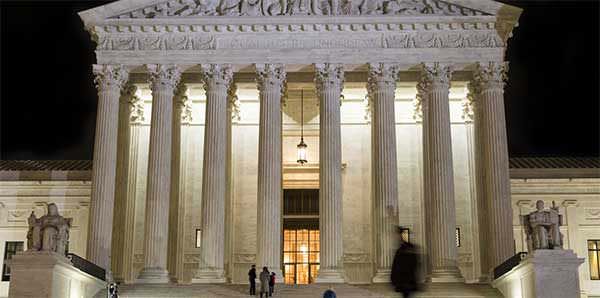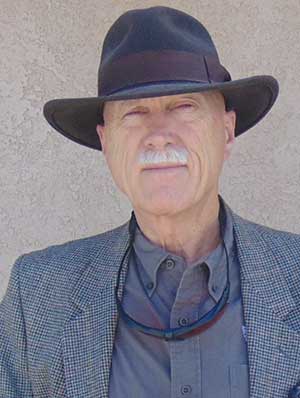By Dean Weingarten


Arizona -(Ammoland.com)- In Peruta v. California, the Ninth Circuit held that the right to carry concealed arms outside the home was not protected by the Second Amendment.
The Ninth refused to consider that the ability to carry openly was prohibited by California law, thus nullifying the right to carry outside of the home.
On Monday, 26 June, the Supreme Court officially denied the petition for a write of certiorari. The Ninth Circuit denial of Second Amendment rights outside the home will stand.
The Supreme Court declined to review a case about the right to carry firearms outside the home, but two justices publicly dissented from their colleagues’ decision not to take up the issue.
The high court said Monday it would not hear a National Rifle Association-supported legal challenge by California resident Edward Peruta, who challenged a state law limiting gun-carrying permits to those showing “good cause” and a San Diego County policy that says concern about personal safety is not sufficient to fulfill the requirement.
Gun rights advocates say the limits violate the Constitutional right to bear arms.
Justices Thomas and Gorsuch dissented. Both Justices held that Peruta should have been heard by the court. Four justices are required to agree to take a case. Justices Thomas and Gorsuch voted to hear the case. It is possible that another justice also voted to hear Peruta, but chose not to dissent. There was no fourth justice in favor, or the case would have been scheduled. The dissent is well written. Here is an excerpt from the dissent by Justice Thomas:
We should have granted certiorari in this case. The approach taken by the en banc court is indefensible, and the petition raises important questions that this Court should address. I see no reason to await another case.
A
The en banc court’s decision to limit its review to whether the Second Amendment protects the right to concealed carry—as opposed to the more general right to public carry—was untenable. Most fundamentally, it was not justified by the terms of the complaint, which called into question the State’s regulatory scheme as a whole. See First Amended Complaint ¶63 (“Because California does not permit the open carriage of loaded firearms, concealed carriage with a [concealed carry] permit is the only means by which an individual can bear arms in public places”); id., ¶74 (“States may not completely ban the carrying of handguns for self-defense”). And although the complaint specified the remedy that intruded least on the State’s overall regulatory regime—declaratory relief and an injunction against the sheriff ’s restrictive interpretation of “good cause”—it also requested “[a]ny further relief as the Court deems just and proper.” Id., ¶152.Nor was the Ninth Circuit’s approach justified by the history of this litigation. The District Court emphasized that “the heart of the parties’ dispute” is whether the Second Amendment protects “the right to carry a loaded handgun in public, either openly or in a concealed manner.” Peruta v. County of San Diego, 758 F. Supp. 2d 1106, 1109 (SD Cal. 2010). As the Ninth Circuit panel pointed out, “[petitioners] argue that the San Diego County policy in light of the California licensing scheme as a whole violates the Second Amendment because it precludes a responsible, law-abiding citizen from carrying a weapon in public for the purpose of lawful self-defense in any manner.” 742 F. 3d, at 1171. The panel further observed that although petitioners “focu[s]” their challenge on the “licensing scheme for concealed carry,” this is “for good reason: acquiring such a license is the only practical avenue by which [they] may come lawfully to carry a gun for self-defense in San Diego County.” Ibid. Even the en banc court acknowledged that petitioners “base their argument on the entirety of California’s statutory scheme” and “do not contend that there is a free-standing Second Amendment right to carry concealed firearms.” 824 F. 3d, at 927.
The refusal to hear Peruta means that a Supreme Court case about the right to carry outside the home may not happen for a considerable period.
It makes the passage of a national reciprocity bills that protect the exercise of Second Amendment rights across the nation, more urgent. There is ample precedent for the federal government’s ability to require states to observe a federal standard for carry permits. It has already done so with the Law Enforcement Officers Safety Act (LEOSA). Courts in New York City and the District of Columbia Court of Appeals have upheld the law.
It would be a small step from requiring States to recognize retired police officers carry permits, to requiring that States recognize the carry rights of people who have those rights in other states. No LEOSA Court cases have been appealed to the Supreme Court.
©2017 by Dean Weingarten: Permission to share is granted when this notice is included.
About Dean Weingarten:
Dean Weingarten has been a peace officer, a military officer, was on the University of Wisconsin Pistol Team for four years, and was first certified to teach firearms safety in 1973. He taught the Arizona concealed carry course for fifteen years until the goal of constitutional carry was attained. He has degrees in meteorology and mining engineering, and recently retired from the Department of Defense after a 30 year career in Army Research, Development, Testing, and Evaluation.
